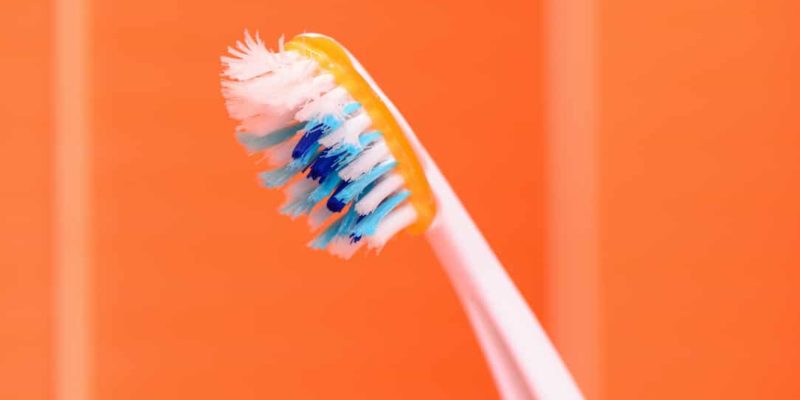Is Your Toothbrush Making You Sick?

While our immune systems are often able to fight off any common germs found on our toothbrush, sometimes they can make you sick. Toothbrushes can contain many different microorganisms, some of which have the potential to make you ill. Are you replacing your toothbrush as often as you should be? Here’s how to prevent your toothbrush from making you sick.
Bacteria and Your Toothbrush
Unfortunately, your toothbrush could be a hub for bacteria to gather and stay. That sounds gross, right? It gets worse too. Most of us brush our teeth in the bathroom of our homes, which means germs like fecal matter can be found on your toothbrush too. The American Dental Association confirms that toothbrushes have been shown to harbor bacteria. Part of the bacteria found? Fecal coliform, a bacteria that is released into the air after a toilet is flushed or when the owner’s hands are contaminated before touching the brush. The good news is that your mouth is naturally full of bacteria, so it’s able to fight off many germs that could potentially cause you to fall ill.
Natural Bacteria and Your Mouth
You can’t see or taste the bacteria that is naturally found in your mouth, but your mouth is full of these microorganisms. Colgate reports that over 700 different strains of bacteria have been found in the human mouth, but most people usually only have 34 to 72 different types in their own mouths. Some of this bacteria is actually beneficial to our teeth and gums too, as it can serve as a protective barrier. In addition, bacteria like probiotics is also beneficial to the digestion of food.
However, there can be harmful bacteria in your mouth. The two most common bacteria that can wreak havoc in your mouth according to Colgate are:
- Streptococcus mutans, a bacteria that lives in your mouth and feeds on the sugars you eat. Due to its rapid appetite, it can produce enamel-eroding acids. This bacteria is the main cause of tooth decay in humans.
- Porphyromonas gingivalis, which isn’t found in a healthy mouth, however, when it is present it’s been linked to periodontitis. This is also known as gum disease.
Replacing Your Toothbrush
A good rule of thumb is to replace your toothbrush head every three months. In the meantime, it’s important that you thoroughly rinse your toothbrush after each use, and store upright so it can dry properly.
You might have to replace it sooner, though, especially if you’ve been sick. If you’ve had an illness like the cold or flu, strep throat, or other mouth-based infections, you’re at risk to become reinfected if you don’t change out your toothbrush. If you can’t seem to get well after being sick, it could be because you keep introducing the bacteria into your mouth straight off your toothbrush head. More good rules to follow to keep your toothbrush as clean as possible include:
- Never sharing your toothbrush
- Don’t store your toothbrush head-down
- Refrain from disinfecting your toothbrush, no matter how tempting it may be
It’s always a good idea to keep an eye on your toothbrush too. If you notice it begins to look frayed or worn, go ahead and replace it. When the bristles fray, they don’t work to clean your teeth as well as they should. In this case, further plaque can develop and lead to a handful of problems like cavities and gum disease.
Choosing the Best Toothbrush For You
There is not a one-size-fits-all toothbrush for people. How do you know what is right for you? Your dentist can help you decide which kind you should choose, but here are some common options:
- Soft-bristled: for those who have sensitive teeth or gums, you might need to use a soft-bristled brush. This still cleans your teeth just as well as a hard toothbrush head would, but it cleans in a more gentle way for those who need it.
- Medium-bristled: this kind of toothbrush is best for people who want something a little more firm to brush their teeth with. These can remove slightly more plaque than soft-bristled brushes, however they can be more damaging to your gums.
Make an Appointment with Dr. Ania
If you’re having any type of dental issue, whether it’s sensitive teeth, bleeding gums, or a different problem, call Dr. Ania and our team today. Our number one priority is your health and wellness, and we will work with you to get to the source of your problem. Call for an appointment now: (303)-872-9940.


